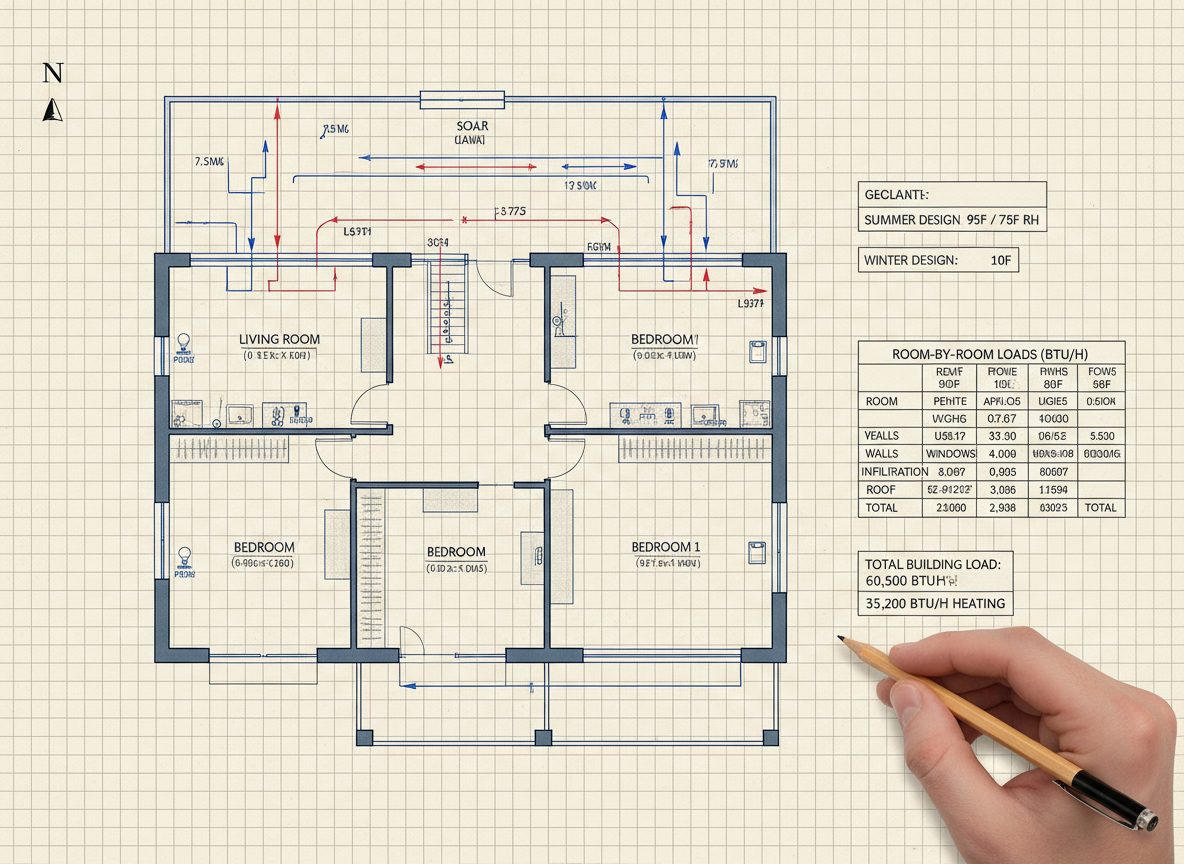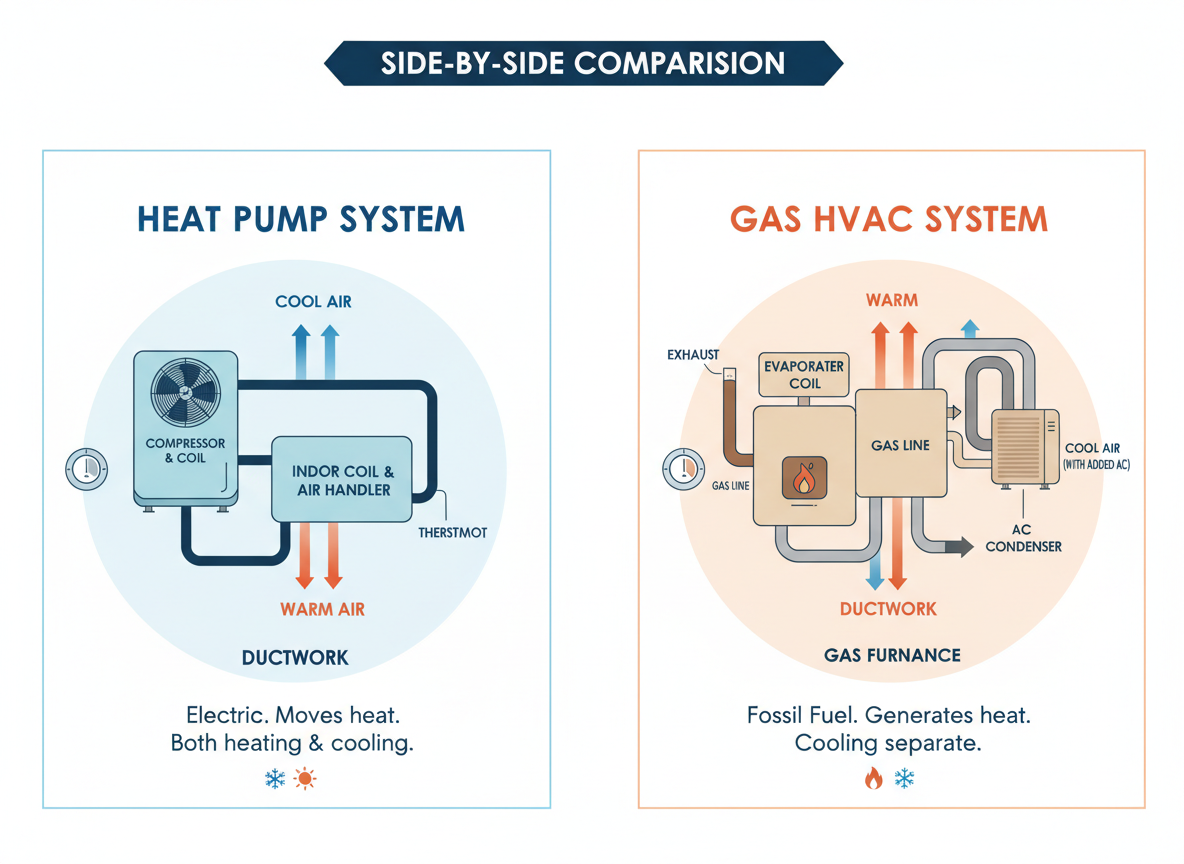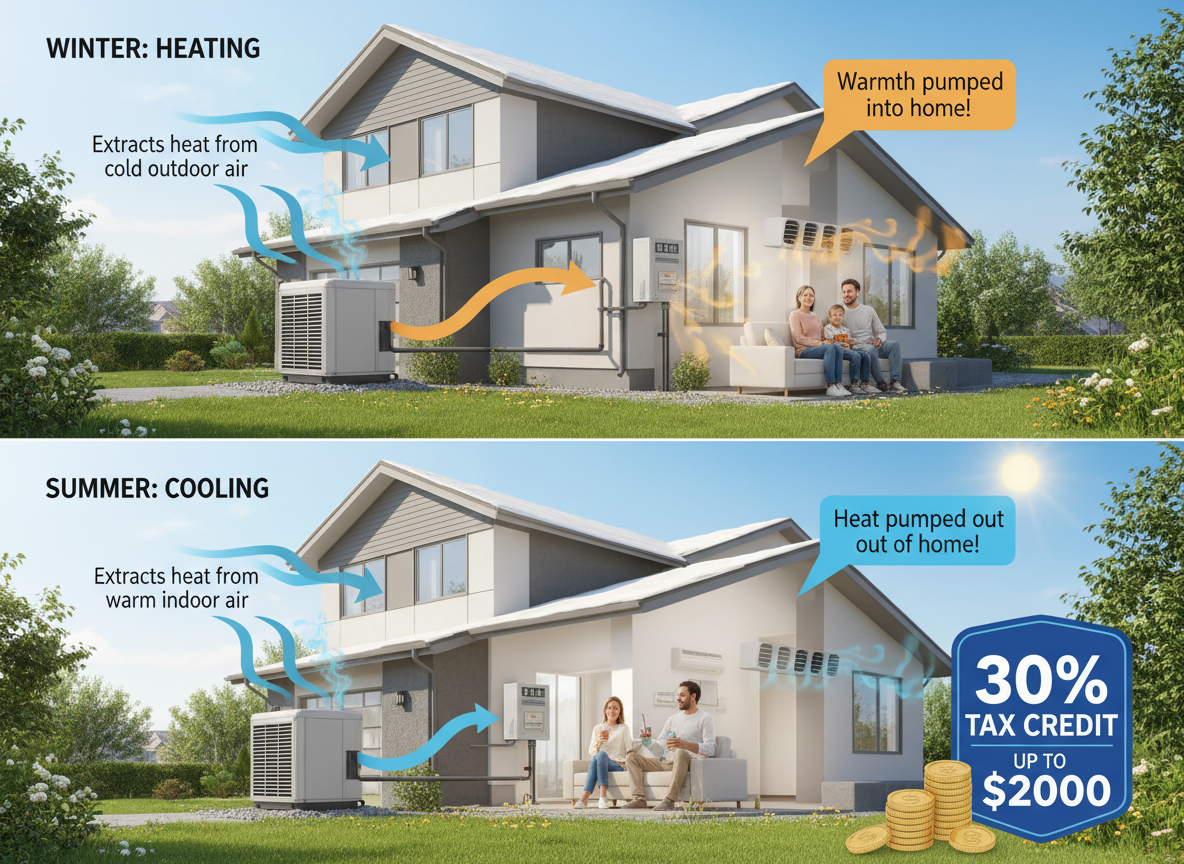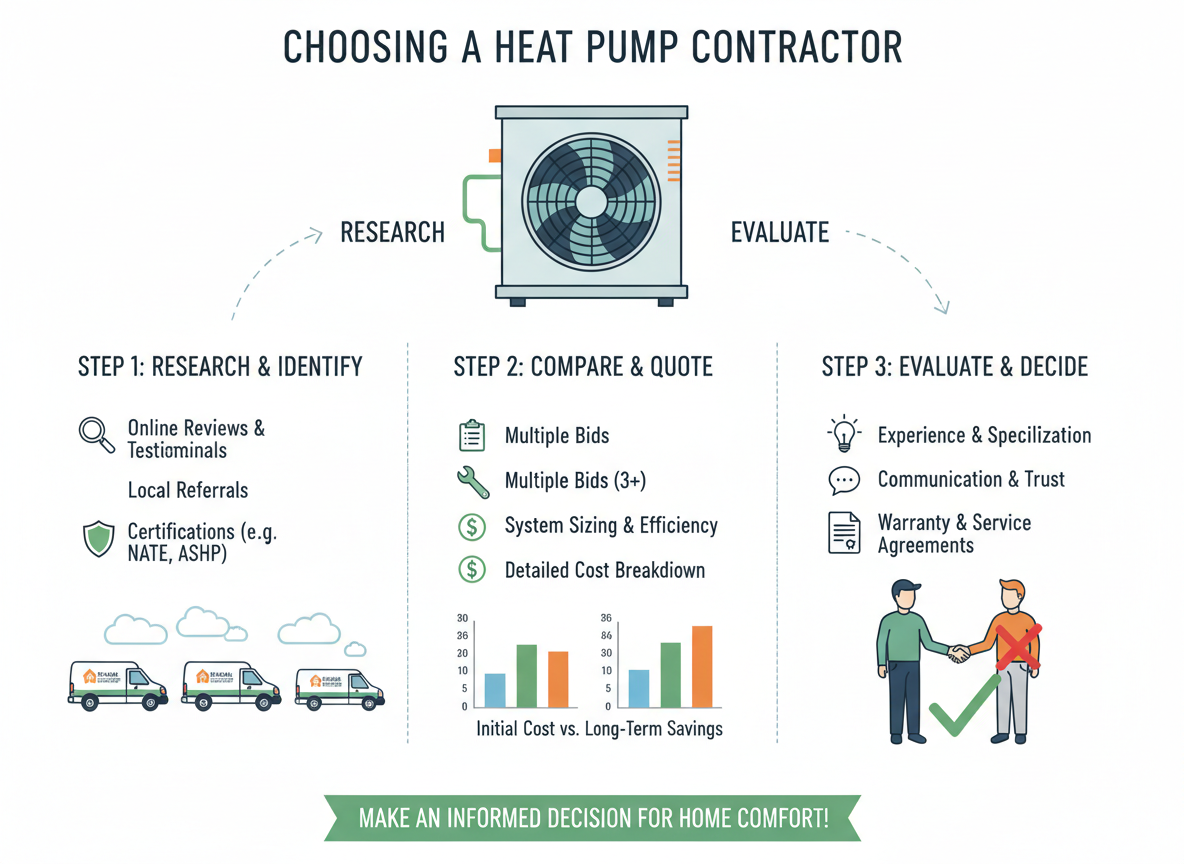
Ensure the state licensed contractor you hire pulls a permit from the local building and safety department when replacing your HVAC system. A permit helps ensure compliance with building codes for both structural and safety standards that protect the property and occupants. Routine building and safety inspections also ensure the system meets Home Energy Rating System (HERS) testing and verification requirements.
What Is A Building Permit?
A building permit is a written authorization issued by a city or county to construct a project. Building permits are required for most construction or remodeling projects to ensure work safety and compliance with building, construction and zoning codes. For HVAC projects the following require permits, but are not limited to:
• New HVAC installation
• HVAC Changeout
• Replacement of furnace, coil, FAU, or condenser
• Relocation of an existing HVAC unit
• Adding or replacing more than 40ft ducting
Major Updates to California HVAC Permit Requirements for 2025 and Beyond
The regulatory landscape for HVAC installations in California is undergoing significant changes. Effective for permit applications submitted on or after January 1, 2026, the 2025 Building Energy Efficiency Standards will expand the use of heat pumps and strengthen ventilation requirements for both residential and commercial properties. Additionally, new legislation (SB282) mandates the creation of a statewide certification program for contractors, set to begin by 2027, to ensure proper installation of these modern, energy-efficient systems. These updates reinforce the need for a valid permit and professional installation to meet mandatory safety standards and uphold California's commitment to energy efficiency.
Who Pulls The Permit?
The person who pulls the permit is the person responsible for following construction codes. Typically, the contractor you hire for your HVAC project pulls the permit. You could also pull the permit as a homeowner but would be considered the contractor and liable if there’s any issues. It’s best to have the contractor pull the permit because they are familiar with the process and city inspections.
What If I Skip Getting A Permit or the Job is Done Without California Permits?
Penalties for not obtaining an HVAC building permit vary from city to city. If your project requires a permit, get a permit. If you’re working with a contractor who suggests skipping this step, hire a different contractor. Whenever getting an estimate for a new AC installation or Heater replacement, always ask the technician if they pull permits during service. If there is a hesitation and the technician needs to check with the office then 99% they do not get permits.
Is it possible to do go work without pulling permits, actually yes! The issue is there is no city inspector coming a couple weeks down the line to make sure all the work has been done properly and up to code. If a HVAC does quality work then it should be standard to get permits, not only to have proof of a job well completed, but to also have an independent party come and make sure the work was done correctly and without major errors.
We at LA heating and air pride ourselves on doing honest, fair-priced work so we pull permits on all installations and replacements because we are not worried about an inspector coming and checking our work in the future. Schedule your free estimate today and see what quality HVAC service is like.
Not only that, but If you need to pull one and don’t, the city could ask you to obtain a permit and then double or triple the permitting fees. The city may also shut down your project or require you to tear down your work if there is any question whether the work was done according to building code.
Projects finished without permits can also:
• Jeopardize your insurance coverage and rates. Your homeowner’s insurance policy could be cancelled.
• Scare away potential homebuyers
• Lower resale value
• You could be setting yourself up for a future lawsuit, if a fire or other disaster occurred as a result of unpermitted construction.
Before Hiring A Contractor
When starting a home renovation project it’s important to:
• Ask the estimator or technician if permits will be pulled for the job, this means they will be accountable to a city inspector for the work they do. You can also verify if they are Clean TECH Certified, which will allow them to be a contractor that is approved for heat pump rebates.
• Learn about local permitting requirements.
• Ask your contractor to provide you with copies of the permit(s).
• Post a copy of the permit in a front window. This may be a requirement in some cities.
• Hire only licensed and bonded contractors for the work.
Furthermore, CSLB (Contractors State License Board) has additional recommendations when hiring a contractor:
• Verify the contractor’s license number on CSLB’s website at www.cslb.ca.gov to make sure the license is in good standing.
• Don’t pay more than 10 percent or $1,000, whichever is less, as a deposit. There is an exception for licensees who carry special bonds to protect consumers. These exceptions are noted on CSLB’s website.
• Don’t let payments get ahead of the work.
• Get at least three bids, check references, and get a written contract.
Avoid any potential future headaches, by following your local permit laws. They are in place to ensure legal compliance, quality of installation and will keep you and your loved ones safe in your home. Contact LA Heating and Air today at (818) 341-3406 or contact us online, we offer free estimates and are here to help you with your next HVAC installation project.
What and When is HERS Verification Required?
All California homeowners and contractors are required to comply with the requirements of the California Code of Regulations Title 24, Part 6, Energy Efficiency Standards for Residential and Nonresidential Buildings to meet the state’s energy goals and requirements. Most importantly, contractors must comply with all applicable California building standards. This includes using certified HERS raters to verify HVAC installations meet energy efficiency standards. Therefore, before starting a home improvement project, be sure to hire a state licensed contractor to make sure all permit and energy regulations are followed.
Description of the HERS Test
A HERS rating is an industry standard, by which a home’s energy efficiency is measured. The HERS Index is based on a scale from 0 to 250. The lower the number, the more energy efficient the home. This relative rating is provided after HERS testing is completed and gives home buyers or homeowners insight as to how the home ranks on an energy efficiency scale.
HERS testing verifies proper installation and efficiency of new system. This is done by completing refrigerant charge test and duct test. New or current duct work must pass the minimum required leakage rate.
Below are three of the most common types of tests performed during HERS testing:
- Duct Test—A duct test measures the amount of air leaks in unconditioned areas from the duct system. The new or current duct work must pass the minimum required leakage rate. All duct work must be sealed and air tight.
- Refrigerant Charge (RC) —This test measures how well your air conditioning system performs and verifies that refrigerant levels were correctly charged and meet manufacturer specifications.
- Cooling Coil Airflow (CCA)—Used in conjunction with the refrigerant charge verification, this test measures the velocity of air flowing through your duct system during the air conditioning cycle.
Frequently Asked Questions about HVAC Permits
How long does it take to get an HVAC permit in Los Angeles?
The permit timeline is influenced by the project's complexity and the building department's current workload, but simple projects can be approved in one to a few weeks. The process is often quicker when a licensed contractor submits a complete application electronically.
How much does an HVAC permit cost?
Permit fees are set by the local building department and vary based on the scope of the project. These fees are typically included in your contractor's total project cost. The cost of permit fees for HVAC installations usually range from $100-$500 depending on several factors.
Can a homeowner pull their own HVAC permit?
While a homeowner can legally pull a permit for their own residence, it is not recommended for complex HVAC jobs. Even HVAC installation professionals will sometimes have to return to a jobsite after an inspection because of 1 or 2 small new changes that an inspector requires. Due to the constant changing rules and regulations that come with replacing your HVAC system in Los Angeles, hiring a professional is extremely important to make sure the installation gets done correctly.
What happens during an HVAC inspection?
An inspector will visit your home to verify that the HVAC installation was completed safely and correctly, following all approved plans and codes. This inspection is a critical final step to ensure the system is safe and fully compliant.
We hope this article helped you better understand your local Los Angeles building permits! When you need an expert for your heating and air conditioning needs, our team is ready to help. We are proud to serve communities throughout the San Fernando Valley and Los Angeles, including Woodland Hills, Simi Valley, West Hills, Glendale, and Northridge. Our services include: air conditioning installation & replacement, commercial HVAC installation, commercial heating, cooling repair and maintenance, residential ac repair and service and heating repair. If you live in or near any of these areas, contact us today for a free ac installation or ac replacement estimate.
California Permit Requirements For HVAC Installations Related Posts:






















.png)














